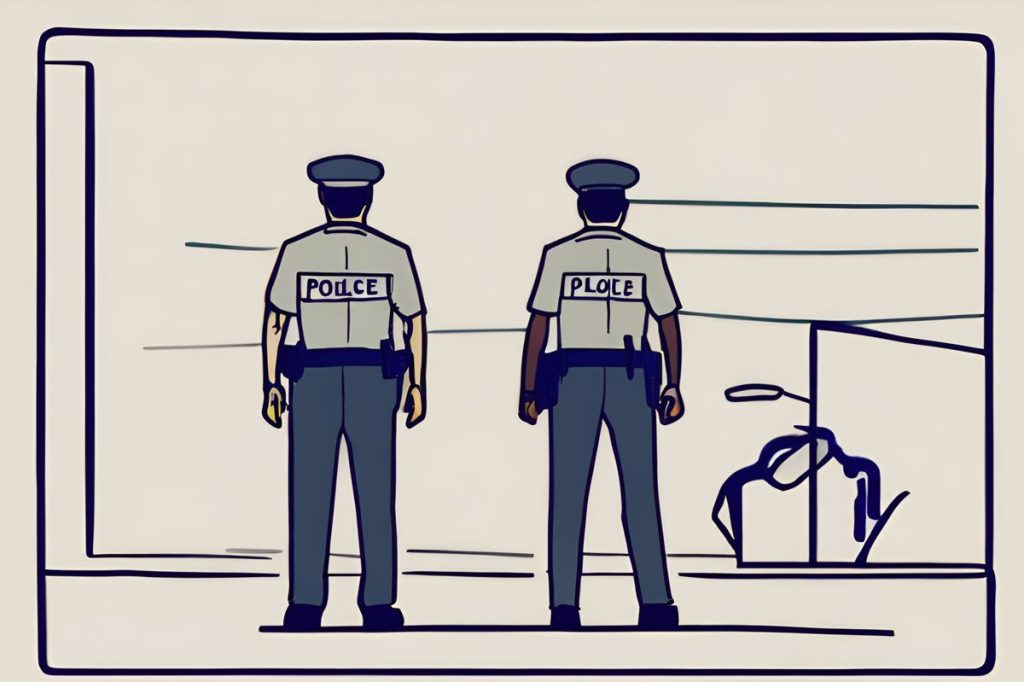A 68-year-old Paphos man was detained for excessive DUI after blowing a breathalyzer result of 97 milligrams of alcohol per 100 milliliters of breath, far surpassing the legal limit of 22 milligrams. Facing potential legal consequences such as heavy fines, imprisonment, and license revocation, this incident serves as a stark reminder of the dangers of drunk driving and the importance of road safety.
What are the legal consequences of drunk driving?
Legal consequences of drunk driving can include heavy fines, imprisonment, the risk of losing a driver’s license, community service, and mandatory participation in educational programs. DUI is treated as a serious crime due to its potential to cause traffic-related fatalities.
An Alarming Increase in Drunk Driving Incidents
It was a typical balmy evening in Paphos when local authorities flagged down a vehicle that seemed to veer a bit too carelessly. What seemed at first glance to be a routine traffic stop quickly escalated into a significant legal issue for the driver, a 68-year-old Paphos resident. His breathalyzer results were alarming: he blew 97 milligrams of alcohol per 100 milliliters of breath, a figure that soared past the country’s legal limit of 22 milligrams. Such a level of intoxication not only poses a grave threat to the safety of the driver but also endangers pedestrians and other road users.
The risk of car accidents increases exponentially with alcohol consumption. Studies have shown that even a small amount of alcohol can affect one’s driving ability. Given the reported level of alcohol in the man’s system, it’s a stark reminder of the potential for disaster on our roads. After the test, the man was taken to the local police station where he was formally charged and is expected to appear before a court.
The Legal Repercussions of Drunk Driving
In many jurisdictions, driving under the influence can have severe legal consequences ranging from heavy fines to imprisonment. The man from Paphos now faces the possibility of these repercussions. The laws are clear and strict for a reason – to deter individuals from making the dangerous decision to drive after drinking. Each year, drunk driving accounts for a distressing percentage of traffic-related fatalities worldwide, and it is treated as a serious crime.
Not only is the individual’s driving license at risk, but depending on the severity of the situation and prior offenses, they might also face imprisonment, community service, and mandatory participation in educational programs. This incident serves as an unfortunate example of the ongoing battle against drunk driving and the importance of adhering to legal limits set for the safety of all.
Road Safety Efforts and Awareness
In response to such incidents, law enforcement agencies often ramp up their efforts to educate the public about the dangers of drunk-driving. Awareness campaigns, increased checkpoints, and the visible presence of traffic patrols are part of the measures taken to prevent such dangerous behavior. These campaigns remind us that the choice to drive while intoxicated is not only a legal issue but a moral one.
Road safety is a shared responsibility. While the legal framework is crucial, it is also important for individuals and communities to promote safe driving practices. Initiatives to designate a non-drinking driver, use of public transport or taxi services after consuming alcohol, and personal accountability are vital components in the quest to reduce the number of drunk-driving occurrences.
A Call to Action for Safer Roads
Stories like that of the Paphos man are a sobering call to action. They highlight the need for sustained efforts in education, law enforcement, and personal responsibility. Drunk-driving not only changes the course of the lives it touches directly but also casts a long shadow over the community’s sense of safety and well-being. It’s imperative that we, as a society, continue to address this issue head-on, ensuring our streets are safe for everyone.
While this particular case has been dealt with by the authorities, the broader implications warrant ongoing discussion and action. It is hoped that increased awareness will lead to better choices, and in turn, safer roads.
What are the legal consequences of drunk driving?
Legal consequences of drunk driving can include heavy fines, imprisonment, the risk of losing a driver’s license, community service, and mandatory participation in educational programs. DUI is treated as a serious crime due to its potential to cause traffic-related fatalities.
What are the potential dangers of drunk driving?
Drunk driving significantly impairs one’s ability to operate a vehicle safely, increasing the risk of car accidents and endangering not only the driver but also pedestrians and other road users. Studies have shown that even small amounts of alcohol can affect driving ability, highlighting the potential for disaster on the roads.
How do law enforcement agencies respond to drunk driving incidents?
In response to drunk driving incidents, law enforcement agencies often increase awareness campaigns, conduct more checkpoints, and increase the presence of traffic patrols to prevent such dangerous behavior. These efforts aim to educate the public about the dangers of driving under the influence and promote road safety.
What can individuals do to contribute to road safety and prevent drunk driving?
Individuals can contribute to road safety by designating a non-drinking driver, using public transport or taxi services after consuming alcohol, and taking personal accountability for their actions. Promoting safe driving practices and making responsible choices are vital in reducing the number of drunk-driving occurrences and ensuring safer roads for everyone.

